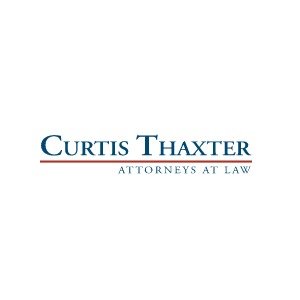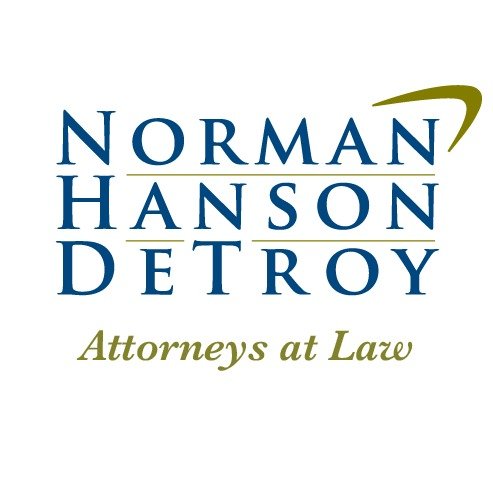Best Elder Abuse Law Lawyers in Maine
Share your needs with us, get contacted by law firms.
Free. Takes 2 min.
Or refine your search by selecting a city:
List of the best lawyers in Maine, United States
About Elder Abuse Law in Maine, United States
Elder abuse law in Maine is designed to protect older adults from physical, emotional, financial, and sexual abuse, as well as neglect and exploitation. Maine law recognizes the vulnerability of elderly citizens and creates avenues for reporting, investigating, and prosecuting instances of mistreatment. Elder abuse can occur in private homes, nursing facilities, or within the community, and Maine statutes provide for both civil and criminal penalties against perpetrators. Protecting elders is considered a public priority, and a variety of legal measures are in place to ensure their safety and well-being.
Why You May Need a Lawyer
If you or a loved one has been a victim of elder abuse, legal assistance can be crucial to safeguard your rights and secure justice. Common situations where legal help is needed include:
- Suspected physical or emotional abuse by caregivers or family members
- Financial exploitation, such as unauthorized transactions or theft
- Neglect or abandonment, particularly in assisted living or nursing homes
- Issues involving guardianships or power of attorney misuse
- Filing protection orders or restraining orders against abusers
- Initiating civil lawsuits for damages due to abuse or neglect
- Reporting abuse through the state's Adult Protective Services system and navigating investigations
A lawyer specializing in elder abuse can help you understand your options, gather evidence, and ensure that the proper authorities are notified. Legal professionals can advocate for your interests in and out of court, and help prevent future incidents.
Local Laws Overview
Maine has a specific set of laws dedicated to addressing elder abuse, largely found in Title 22, Maine Revised Statutes, Chapter 958-A - Adult Protective Services. Key aspects include:
- Definition of Elder Abuse: Maine law defines elder abuse broadly, including physical harm, emotional maltreatment, sexual exploitation, neglect, abandonment, and financial exploitation.
- Mandatory Reporting: Certain professionals, such as healthcare workers, social workers, and law enforcement, are legally required to report suspected abuse, neglect, or exploitation of incapacitated or dependent adults.
- Investigations: The Maine Department of Health and Human Services conducts investigations of reported abuse through Adult Protective Services.
- Protective Orders: Courts can issue protective orders to safeguard elders from further harm, including restraining orders, emergency removals, and appointment of temporary guardians.
- Criminal Penalties: Perpetrators can face serious criminal charges, especially in cases involving bodily injury, significant financial loss, or repeated offenses.
- Victims' Rights: Victims have the right to participate in proceedings, seek restitution, and access community resources for additional support.
These laws are designed both to prevent abuse and to facilitate prompt intervention when abuse occurs.
Frequently Asked Questions
What is considered elder abuse in Maine?
Elder abuse includes physical, emotional, or sexual abuse, neglect, abandonment, and financial exploitation of an adult age 60 or older, or of an incapacitated or dependent adult. This can happen at home, in care facilities, or within the community.
How do I report suspected elder abuse in Maine?
You can report suspected elder abuse to Adult Protective Services through the Maine Department of Health and Human Services by phone, or online. If there is immediate danger, calling 911 is advised.
What happens after elder abuse is reported?
After a report, Adult Protective Services will investigate the situation, assess the elder’s risk and needs, and may coordinate with law enforcement or initiate court proceedings if required.
Can an elder abuse victim sue the abuser?
Yes, elders or their representatives may file civil lawsuits for damages resulting from abuse, including compensation for financial loss, pain and suffering, medical costs, and more.
Are all cases of elder abuse criminal?
Not all cases are criminal, but serious forms of abuse, exploitation, or neglect may result in criminal prosecution, especially if they involve intentional harm or significant financial loss.
Who is a mandated reporter in Maine?
Mandated reporters include healthcare professionals, social workers, law enforcement officers, and other individuals who come in contact with vulnerable adults in a professional capacity.
What protections do victims have while an investigation is ongoing?
Victims can be granted protective orders, temporary restraining orders, and may be placed in safe environments. The court can remove offenders from the elder’s residence if necessary.
What are some signs of elder abuse?
Common signs include unexplained injuries, withdrawal, sudden changes in finances, poor hygiene, unusual fear or anxiety, and lack of basic necessities.
Can someone be removed as power of attorney or guardian for abuse?
Yes, a court can revoke or change a power of attorney or guardianship if the appointed person is found to be exploiting or abusing the elder.
Do elders have to pay for legal help in abuse cases?
Legal fees vary, but many organizations offer free or low-cost legal services to elders suffering abuse. Some cases may allow recovery of attorney’s fees from the abuser as part of civil damages.
Additional Resources
If you or a loved one needs help with elder abuse issues in Maine, consider these resources:
- Maine Department of Health and Human Services - Adult Protective Services: The primary agency for reporting and investigating elder abuse.
- Legal Services for the Elderly: A nonprofit organization offering free legal aid to Maine residents over 60.
- Maine Office of the Attorney General: Handles cases of financial exploitation and abuse. Provides educational materials and assistance.
- Maine Long-Term Care Ombudsman Program: Advocates for residents of long-term care facilities and helps address concerns regarding care and treatment.
- Local Law Enforcement: For immediate threats or suspected criminal behavior, local police or sheriff departments can assist.
Next Steps
If you suspect elder abuse or need help navigating Maine's elder abuse laws, consider the following steps:
- Ensure the immediate safety of the elder. Call law enforcement if there is immediate danger.
- Report suspected abuse to Adult Protective Services or the appropriate authorities as soon as possible.
- Document evidence of abuse if safe and possible, including photographs, written notes, and witness information.
- Consult with a lawyer who has experience in elder abuse law in Maine. Many offer initial consultations at no cost or a reduced fee.
- Connect with local support organizations for additional guidance, emotional support, and legal referrals.
Taking prompt action can protect the rights and well-being of elderly individuals and ensure perpetrators are held accountable. If you are unsure where to begin, contacting a legal aid organization or Adult Protective Services is a good first step.
Lawzana helps you find the best lawyers and law firms in Maine through a curated and pre-screened list of qualified legal professionals. Our platform offers rankings and detailed profiles of attorneys and law firms, allowing you to compare based on practice areas, including Elder Abuse Law, experience, and client feedback.
Each profile includes a description of the firm's areas of practice, client reviews, team members and partners, year of establishment, spoken languages, office locations, contact information, social media presence, and any published articles or resources. Most firms on our platform speak English and are experienced in both local and international legal matters.
Get a quote from top-rated law firms in Maine, United States — quickly, securely, and without unnecessary hassle.
Disclaimer:
The information provided on this page is for general informational purposes only and does not constitute legal advice. While we strive to ensure the accuracy and relevance of the content, legal information may change over time, and interpretations of the law can vary. You should always consult with a qualified legal professional for advice specific to your situation.
We disclaim all liability for actions taken or not taken based on the content of this page. If you believe any information is incorrect or outdated, please contact us, and we will review and update it where appropriate.
Browse elder abuse law law firms by city in Maine
Refine your search by selecting a city.










